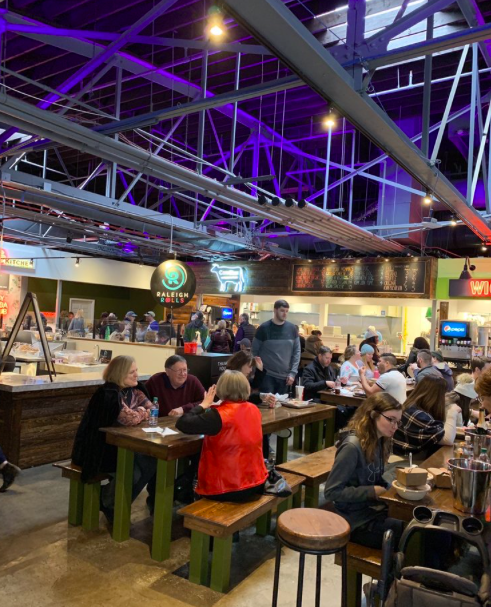The food hall movement is rapidly increasing in popularity across the United States. According to this report from BISNOW, food halls are expected to hit 300 total locations by the end of 2020. That’s more than triple the number when food halls originally began being tracked in 2015.
If you’re not familiar with food halls, they come in a number of permutations. Some of these halls have flexible locations where food trucks can come in, park, and leave easily. Others merge retail with small food kiosks and restaurants and offer shared seating area for guests.
Think of these food halls as a revitalized spin on the tired shopping mall food court. These halls offer guests the opportunity to sample from a variety of food vendors and dine in a communal location. Often these halls are located in trendy downtown urban areas, but not always.
Watch the video below for a guided tour of some of the best Los Angeles food halls from Yellow Productions.
Should You Lease Space at a Food Hall?
With an increase in the number of food hall projects in development there’s probably a location coming soon to your market too if it’s not there already. So should you sign a longterm lease at a place like this?
While there is a ton of excitement around this rapidly growing segment, it doesn’t mean that all locations will be created equal. And just because a certain concept is popular in San Francisco right now, doesn’t mean the model will be as popular where you live.
Just because you have a shared space, doesn’t mean the monthly lease expenses will be any cheaper than a traditional restaurant location. For example the Morgan Food Hall in Raleigh, North Carolina, vendors can expect to pay between $500 – $8,000 per month for a lease.

How To Identify Profit Potential in a New or Existing Food Hall
One of the advantages to the food hall concept is they can be destinations for diners. If you plan to open a restaurant in a strip mall for example, you can expect that a lot of the marketing will fall on your shoulders as the business owner.
If you’re considering entering a food hall as a vendor the most important job is to figure out if there’s sufficient foot traffic to support the business. The easiest way to determine if there will be a sufficient number of potential customers is to spend time in the area yourself. Make sure not to only visit on Fridays and Saturdays when these locations are bustling with activity. But check on a Tuesday afternoon and Wednesday evening too. This due diligence will give you a better perspective on how much foot traffic really exists throughout the week. This is a simple way to confirm whether or not the location is worth it from an investment standpoint.
If the food hall is brand new or under construction, you won’t be able to get these kinds of traffic insights. Instead take a look at the surrounding community for clues. Are there major office buildings or retail centers within walking distance where employees could come for lunch? Is this an up-and-coming area where you expect growth in the coming years? Can you get a shorter-term lease to reduce business risk? These are all important questions to ask.
Beyond estimating the market opportunity, the next thing you’ll want to confirm is whether or not your concept will work in the food hall. Find out the types of restaurants that will be serving in the same food hall to ensure there are a diverse set of menus. If you plan to open an Indian inspired restaurant, you don’t want two other businesses with the similar menu operating in your area.
Aside from the nearby competition, also consider whether your menu makes sense for the environment. If the food hall is only busy during the evenings, you may want to reconsider opening a cafe that specializes in breakfast. The timing might not be right!
Continued Growth for the Foreseeable Future
For the next five years, the proliferation of food halls seems inevitable. According to reports from sources like Yahoo!, landlords are continuing to place bets on this concept especially in shopping malls where traffic has declined.
As a food vendor, it’s critical to stay on-top of changing consumer preferences. Establishing your business in a food hall could be the ideal way for you to capitalize on a trend that is poised for success in the coming years.
